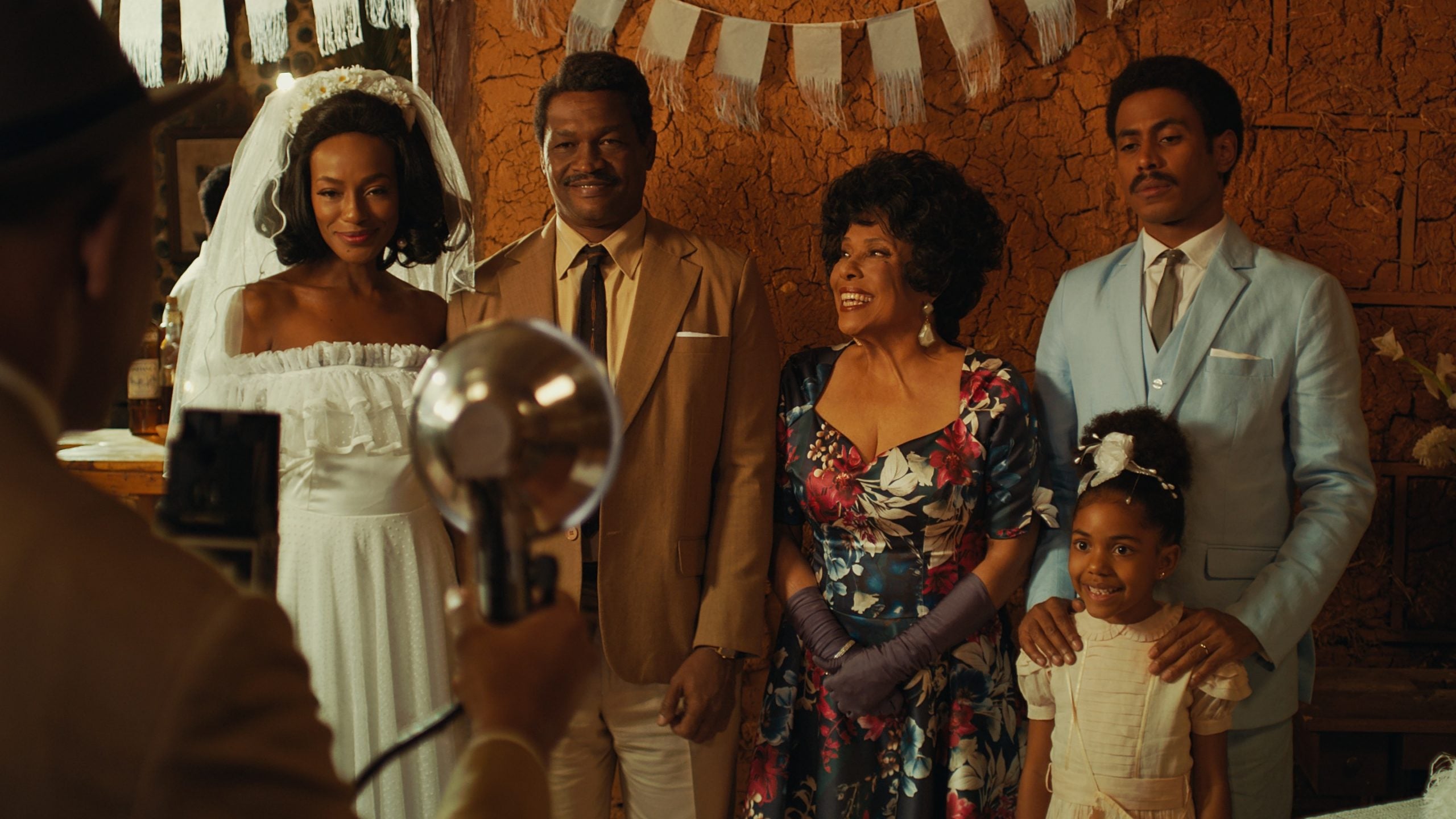
For a long time, the 1959 film Black Orpheus served as a crowning reference of Black Brazilian culture. Orishas, samba and majestic melanin took center stage against the backdrop of carnival in Rio de Janeiro. Fast forward many years to 2003’s City of God, which followed two young Black men as they took vastly different roads out of Rio’s favelas, and the more recent Café com Canela, the 2017 indie film about a long night of revelations amongst five friends.
However, for a country with an estimated 80 million people who are of African ancestry, Afro-Brazilians do not see much of themselves on screen. Enter: Netflix’s Girls from Ipanema. While the 1960 set drama centers around four women who forge a bond around Maria Luiza, who has been royally wronged by her husband, it’s Adélia (played by Pathy Dejesus) the domestic worker-turned-entrepreneur from “the hills” who made us dig into the series.
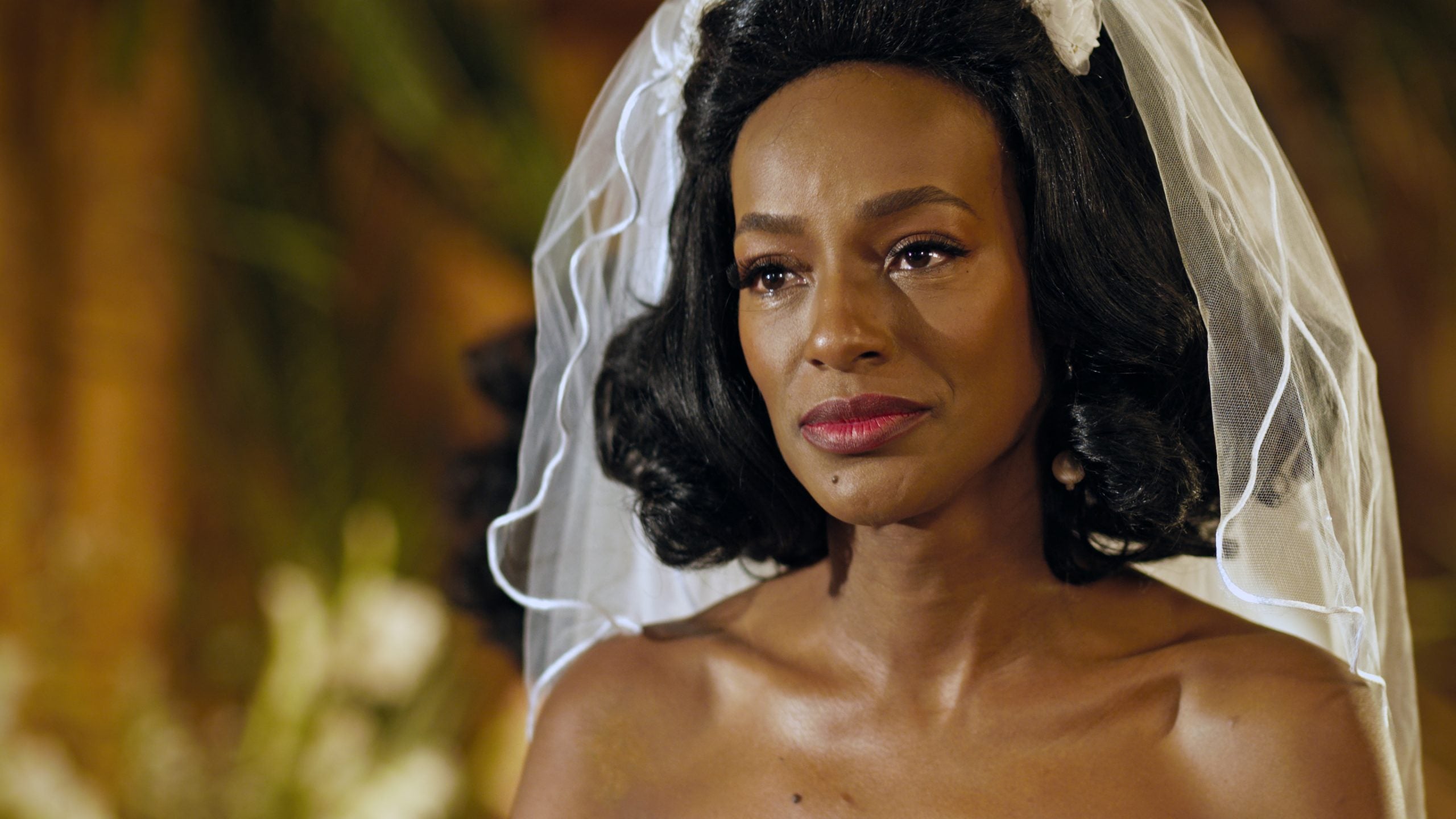
Truthfully, Adélia’s storyline in the first season is minimal. Even though Adélia becomes Maria’s equal partner in the launch of a music club, Adélia’s authority as a business owner would rarely surface in scenes unless she’s directing workers to clean up. At her club, Coisa Mais Linda, she’d often be background or sitting quietly as the other three White leads carried on their complicated lives. It’s not until Adélia’s at home do we see her layers: she’s in a struggling relationship with Capitão (Ícaro Silva) who has painfully discovered their daughter Conceição (Sarah Vitória) is not his.
But in season two—now streaming—that all changes. Dejesus’s Adélia broadens so widely there’s nearly a whole episode dedicated to her and Cap’s wedding, which introduces her estranged father (Val Perré) and jubilant mother-in-law (Eliana Pittman). The new season also anchors Ivonne (Larissa Nunes), Adélia’s little sister, who’s finding her own way out of the hills.
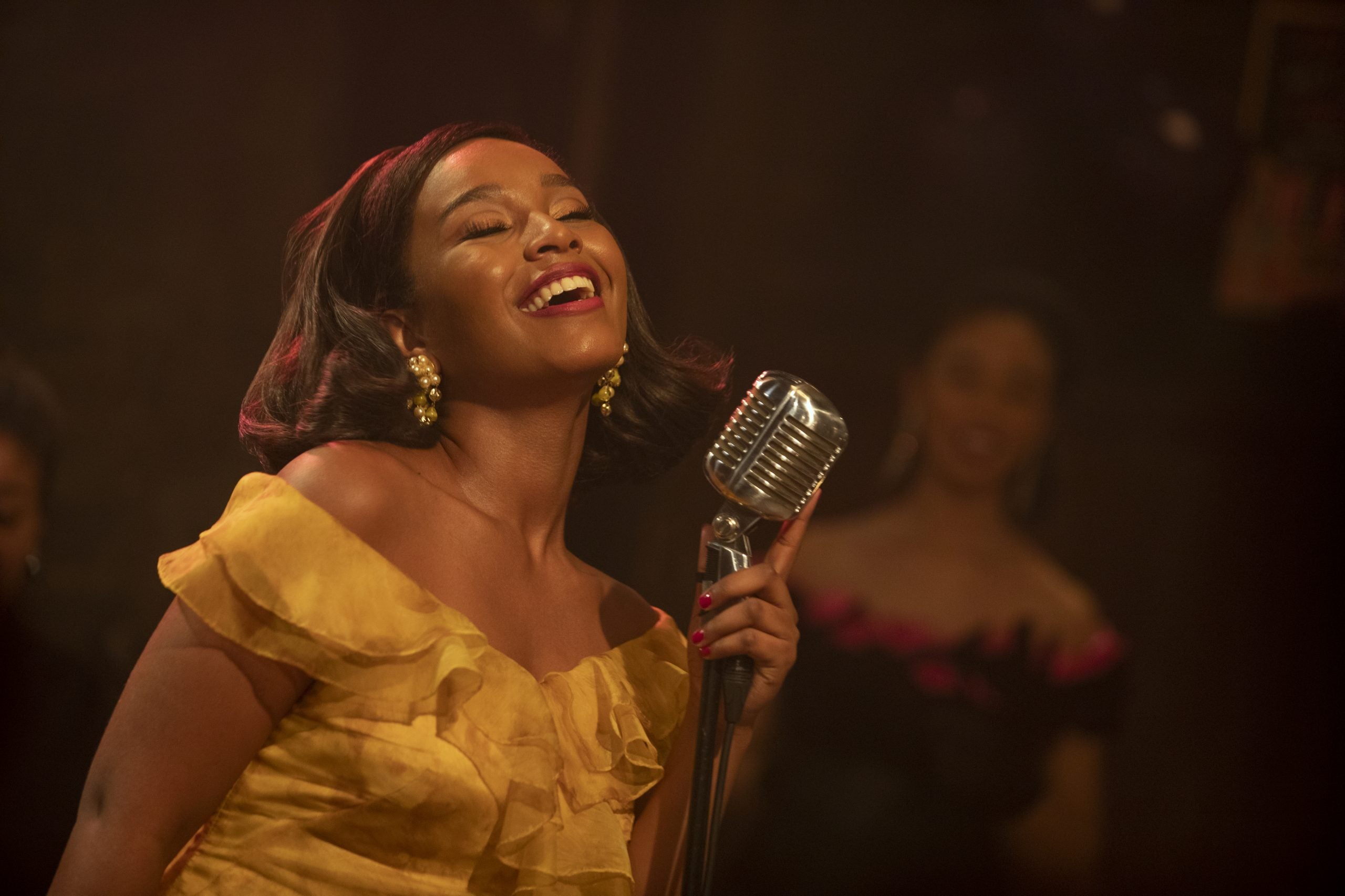
With our curiosity piqued, ESSENCE called up Netflix’s Strong Black Lead office for a direct line to Pathy Dejesus, who lives in Sao Paulo with partner Alexandre Cioletti and their son Rakim. (Real-life plot twist: They met on set of the series, which cast them as forbidden lovers.) Dejesus, who’s also a popular DJ, answered our questions via email. Read what she has to about Black Brazilian representation in media, her character’s growth and how she fell in love with hip hop.
The Girls from Ipanema caught our attention because you were in the series poster, which let us know your character Adélia must have a significant part. We watched season 1 and now with season two available, there’s also you and your costar who plays Ivonne (Larissa Nunes). Please share how does it feel to have an uptick of Afro-Brazilian representation from season 1 to 2.
PATHY DEJESUS: If you analyze, in the 1st season Adélia was the only one of the four protagonists who did not have an effective circle. I am immensely happy to see her as the protagonist of her own story in this 2nd season. It is not so common around here. Stories of black characters usually follow a pattern: support for a main character, a character without a family core, something linked to violence, drug trafficking, places of subordination. In a business group he will never be the most prominent person … and so on. This 2nd season features this powerful, alive, strong core! It brought wonderful black actors with good stories and contributed to the success of this new phase.

In America, we have seen very few examples of Afro-Brazilians on screen. Can you give me your thoughts and/or opinion on how much (or little) representation Afro-Brazilians have had in media?
PATHY DEJESUS: This is a great debate in Brazil, about Black representation (or the lack of it) in the media. First, I have to say that this reflects a society that was structurally equipped so that Black people would not rise. In all spheres. The media reflects that. That is why in the past, initiatives such as the Teatro Experimental do Negro (TEN) supported autonomous productions by Black artists. Some important steps were taken, including the technology that ended up amplifying the debates and tensions created within that market. From the moment we started to understand our importance, relevance and we fought for it, the market also begins to understand that if there is no change, they will be affected even financially.
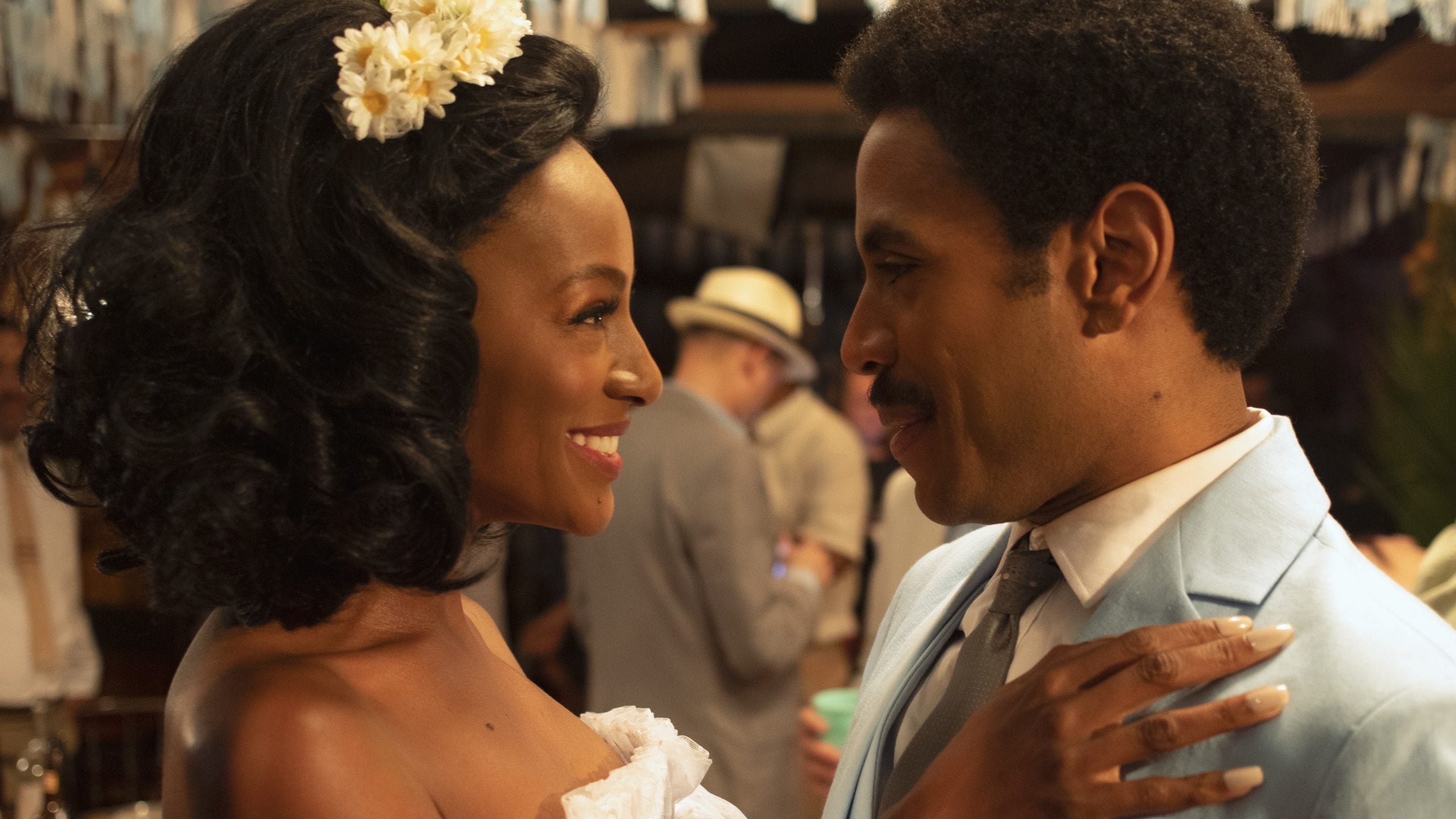
Forgive us for not seeing your other roles, which from our research include playing Nicole on Rua Augusta and Laura on Desnude. But how does portraying Adélia compare to your other past roles?
DEJESUS: The characters are very different and this is very good. Nicole is a call girl who works on a well-known street in São Paulo (Rua Augusta) and it was complex to compose the character. My commitment was to leave prejudices aside, not to turn her into a caricature and humanize it. Nicole also danced in a club, so I had to do pole dance and a lot of body preparation. Nicole was solar, restless, outgoing, mocking.
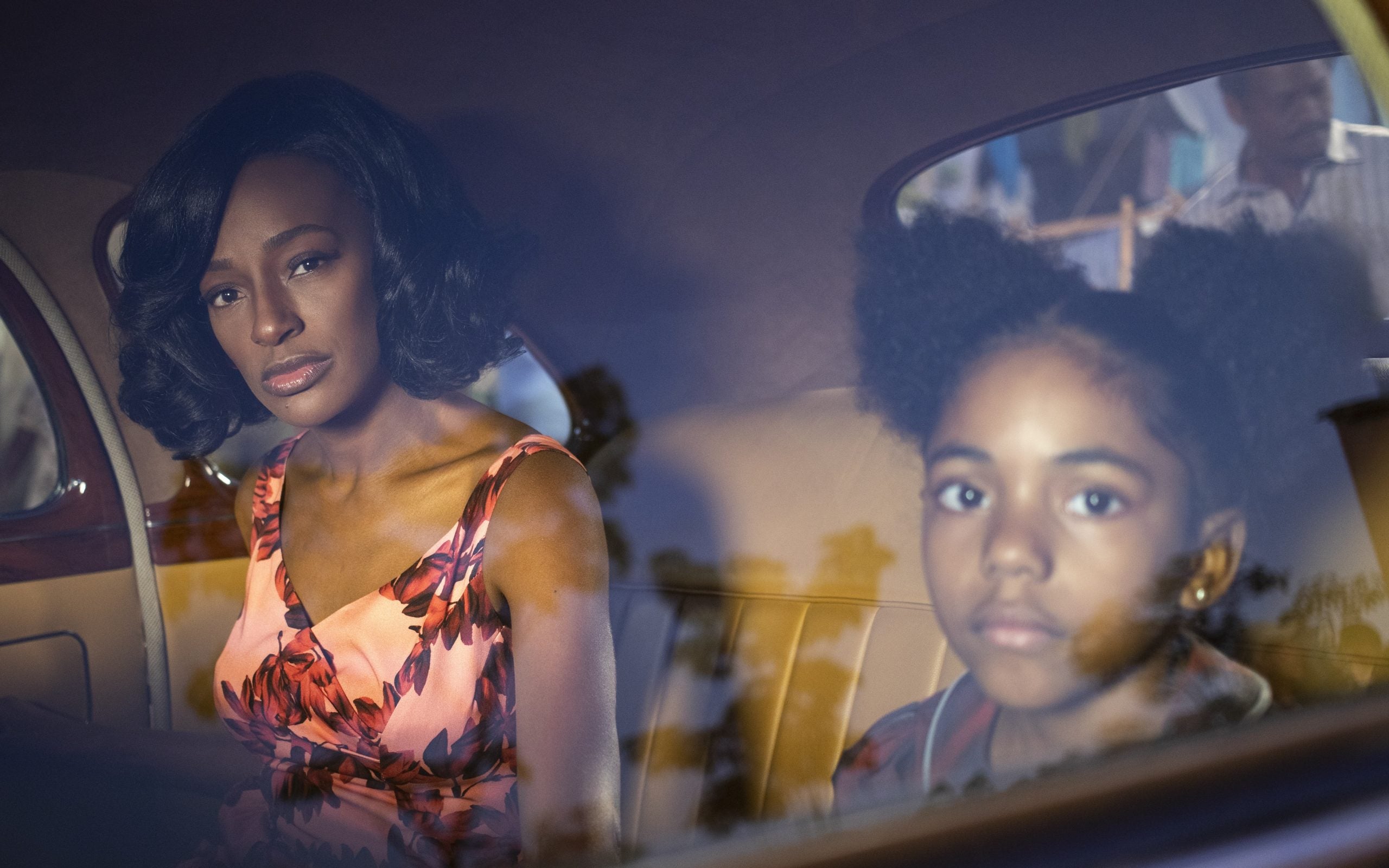
Adélia, on the other hand, is a peripheral Black woman, and despite being strong she carries all the pain and the weight of it all and still raises a daughter and younger sister by herself. She is mature, centered, down to earth. Extremely responsible and at first too selfless.
Although Girls from Ipanema is set in 1960, the female characters face issues still prevalent today. But your arc of putting your true feelings above staying in a loveless marriage with Cap was really moving. Tell me your thoughts about portraying a woman putting her happiness and peace of mind first.
DEJESUS: I always have to remember we are talking about 1960, because the subjects covered in the series are so current, that sometimes we end up forgetting. Black women are almost always neglected, especially effectively speaking. Imagine in 1960! Regardless of Adélia’s choices, it makes me happy to leave this reality, this pattern. A pattern that often is reproduced in dramaturgy. Okay, she had to almost die to finally think of her first, maybe she wouldn’t have that courage if it weren’t for her illness, and she wouldn’t run after her first true love. And I think the public is not used to that, and in a certain way, the judgment is more severe.
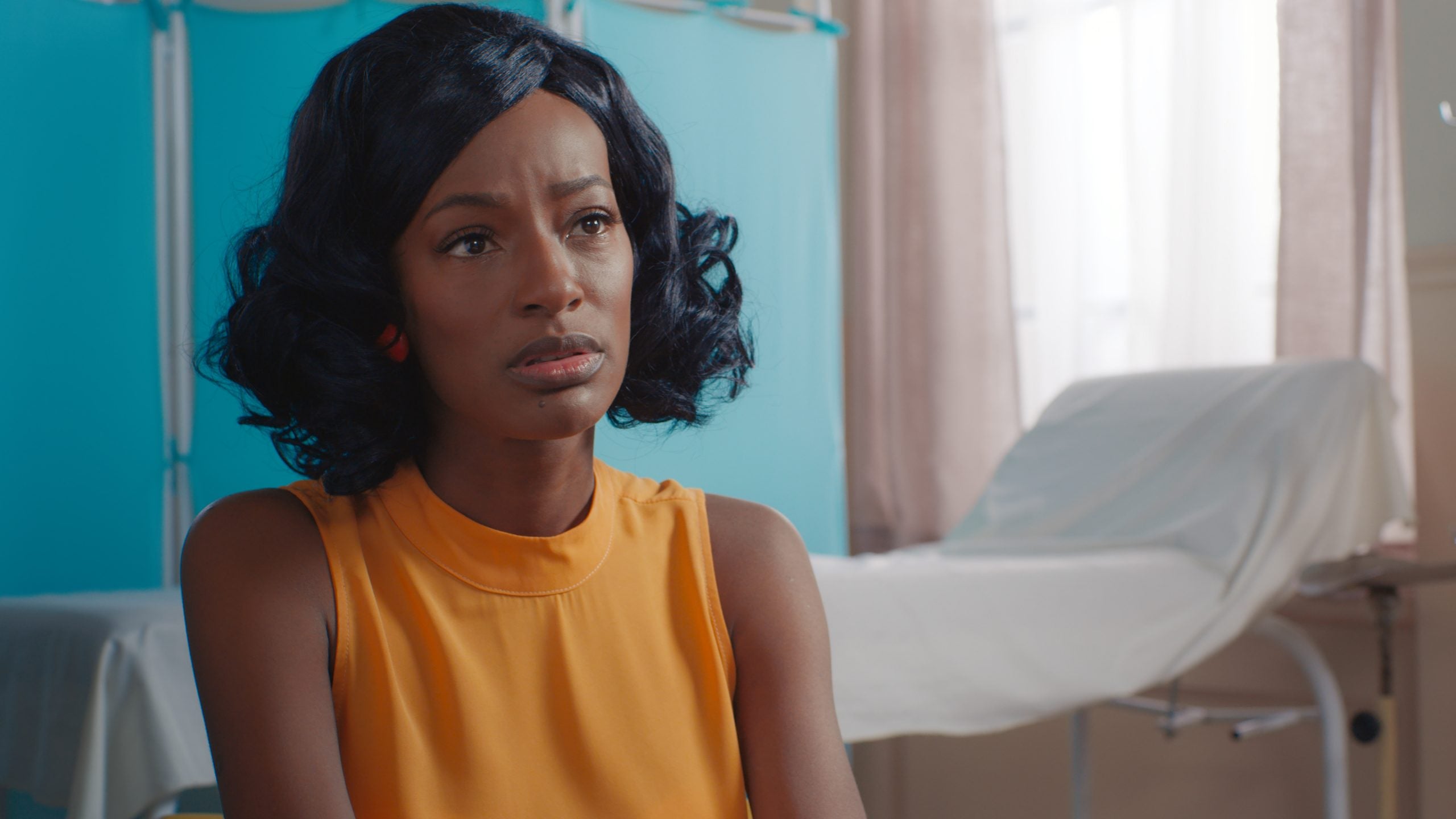
Are there parts of Adélia’s life that mirror your life? Have you ever encountered blatant racism that Adélia’s experiences in the elevator or at the beach? Or the sexism experienced by your costar’s characters? If so, how did you overcome it?
DEJESUS: Of course, I face racism since I became aware of my existence within our society. Brazil is an extremely racist country.
But it is worth mentioning that racism here is often subtle. Another point that needs to be highlighted is structural racism. Being a woman and a Black woman, I always need to be extremely assertive and always deliver all jobs with great excellence, because opportunities are scarcer. Occupying seats is a daily struggle but staying in them is just as difficult.
In discovering the series, we learned you’re an incredible DJ and you named your son Rakim. When did you fall in love with hip hop?
DEJESUS: My dad was a DJ in the 70s. I grew up listening to references from that time. Foreign and Brazilian Black music. Around the 90s rap got to me. And my first interest in rap was because I listened to the song and easily identified the sample. Then I went to study the history of hip hop and I’ve found identification in it, mainly because it was a resistance movement and then I went after translating the lyrics and fell in love for good. Here in Brazil, Racionais MC’s was my biggest reference, bringing a voice to the least favored people, speaking truths never said in such a strong way and rhymes with very smart metrics, influencing and strengthening a generation of young Blacks.
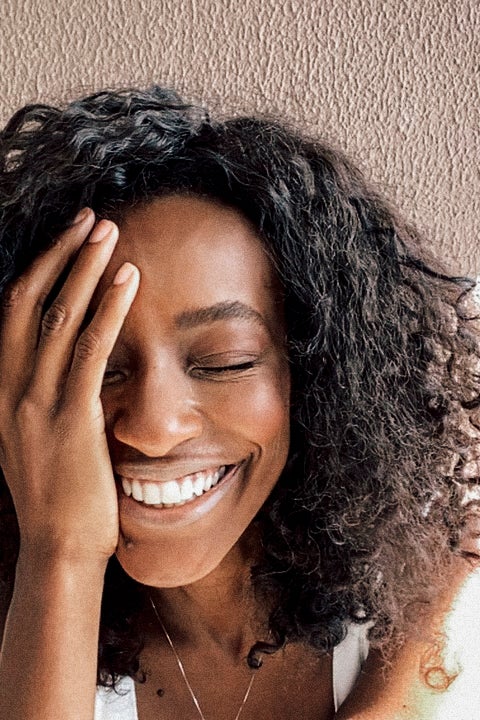
A few years ago, Chris Rock had a film called Top Five and there was a scene when he asked famous comedians who were their top five MC’s. Can you tell us your top five MC’s?
DEJESUS: A super difficult question! Internationally: Kendrick Lamar, Rakim, Krs One, Mc Lyte, Jay-z. And in Brazil: Mano Brown, Xis, Negra Li, Sabotage, Criolo.